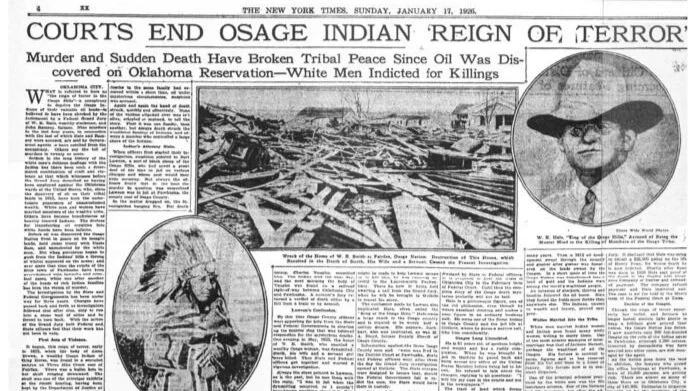Coulter’s ignorant, hateful comment (“we didn’t kill enough Indians”) echoes shameful words from our past
Conservative political pundit Ann Coulter sparked a backlash from Native leaders on July 6 after posting on her X account, “We didn’t kill enough Indians.” (Editor’s note: Coulter’s comment has since been deleted.)
Coulter’s comment came in response to comments made by University of Minnesota Professor Melanie Yazzie during a Dec. 3, 2023, event (not a 2025 event like Coulter asserted in her X post) featuring Native people discussing the similarities between Palestinians and Indigenous people of America. The event occurred nearly two months after the Oct. 7, 2023, attack by Hamas militants that sparked the most recent Israel-Palestine conflict.
Yazzie, Diné (Navajo), had talked about the Land Back movement and the need to decolonize America.
“Because the U.S. is the greatest predator empire that has ever existed. So we want U.S. out of everywhere … and the goal is to dismantle the settler project that is the United States,” Yazzie stated in the posted video.
Coulter’s statement immediately drew criticism from Native leaders across the country, including Cherokee Nation Principal Chief Chuck Hoskin, Jr., who issued one of the first public statements the same evening after Coulter posted her incendiary comment.
“Coulter’s statement, on its face, is a despicable rhetorical shot trained on the First Peoples of this continent, designed to dehumanize and diminish us and our ancestors and puts us at risk of further injury,” Hoskin posted on Facebook. “We have faced enough of that since this country’s founding. Such rhetoric has aided and abetted the destruction of tribes, their life ways, languages and cultures, the violation of treaty rights, violence, oppression, suppression and dispossession.”
Political leaders calling for genocide of Native people and decrying their complete eradication is nothing new to Indigenous people. Hoskin referenced President Andrew Jackson as a former leader who might have agreed with Coulter if he were alive today. Jackson has long been considered to have demonstrated hostility to tribes having championed the Indian Removal Act of 1830, which led to the forced removal of eastern tribes from their homelands to Indian Territory (today Oklahoma).
Another former president, Theodore “Teddy” Roosevelt once made a controversial statement during a January 1886 speech in New York. In his speech, Roosevelt spoke about his own experiences with Native people.
“I don’t go so far as to think that the only good Indians are the dead Indians, but I believe nine out of every 10 are, and I shouldn’t like to inquire too closely into the case of the 10th,” Roosevelt said.
Later, his statement was later erroneously abridged and popularized as: “The only good Indian is a dead Indian.”
Hoskin said he feared Coulter’s statement shared on her X account, which has 2.1 million followers, might contribute to normalizing hatred toward marginalized populations, especially during the current polarized political climate.
“The country frequently seems on the verge of political violence,” he said. “Coulter’s post implicitly encourages it.”
Other Native leaders and advocacy organizations also took aim at Coulter this week, including Eastern Band of Cherokee Principal Chief Michell Hicks, who called her statement “genocidal rhetoric that glorifies violence against Indigenous peoples.”
Hicks expressed defiance as well, saying “despite every attempt to erase us, we are still here. We have survived and we have prospered.” He said he feared Coulter’s would incite further hatred and violence against Indigenous people.
“It stokes division and it places Indigenous people, and other communities targeted by hate, at greater risk of harm,” Hicks said.
Indeed, many of Coulter’s followers on X expressed support for her statement, posting comments such as: “She’s just saying what everyone is thinking,” “We did our best; we simply ran out of blankets,” and “Now I want to open a cheap firewater store near a reservation with drone home delivery service. These things are more tolerable when they are destroying themselves.”
National Congress of American Indians President Mark Macarro issued a statement on July 7 condemning Coulter’s statement.
“We will not sit silently at attempts to normalize this abhorrent behavior,” he said. “We demand an immediate retraction and public apology — and we expect leaders of every political persuasion to denounce this abomination without equivocation.”
John E. Echohawk, executive director of the Native American Rights Fund, said Coulter’s comment echoed the voices of past U.S. leaders who have sought to assimilate and eradicate Indigenous people.
“Although abhorrent, this language is not new,” he said. “Getting rid of Native Americans has been the stated goal of a slew of U.S. policies from the Trail of Tears to the Termination Era … Genocidal language aimed at Native Americans was supposed to be something of the past. It was something that mainstream society had rejected and moved past — until Coulter’s post.
“We call on all those who are decent, who have moral values, to denounce this type of hate speech,” he said. “We should not treat each other in this way. The dark history of the United States’ policies towards Native people should not be repeated.”
Kevin Abourezk is the deputy managing editor of Indian Country Today and an award-winning film producer who has spent his 24-year career in journalism documenting the lives, accomplishments and tragedies of Native American people. He holds a bachelor’s degree in English from the University of South Dakota and a master’s in journalism from the University of Nebraska-Lincoln.
Photo: marker on the Trail of Tears National Historic Trail, public domain, wikimedia commons
The South Dakota Standard is offered freely and is supported by our readers. We have no political or commercial sponsorship. If you'd like to help us continue our mission to advance independent political and social commentary, you can do so by clicking on the "Donate" button that's on the sidebar to your right.







